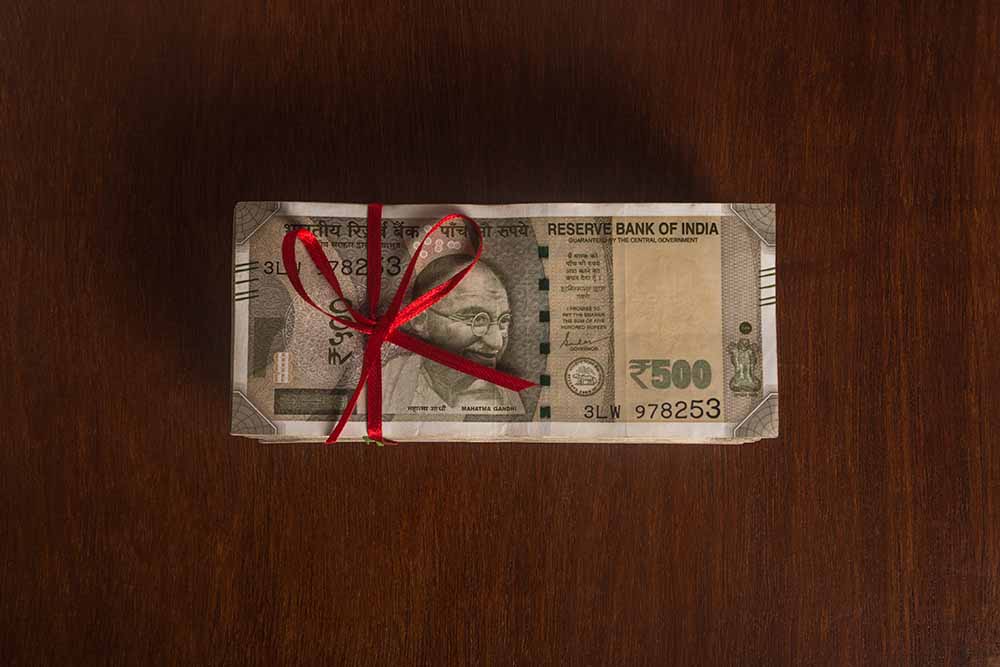Altruism takes many forms. You could choose to be generous with your time, or part with your resources or spend energy on the causes that matter to you. In fact, women are the ultimate ‘all-rounders’ when it comes to giving. You don’t have to look further than Florence Nightingale, Mother Teresa, or Savitribai Phule, who recognised the need for financial contribution to marginalised members of society, but also devoted their lives to it.
Now we're not suggesting that you should follow exactly in their footsteps, but when you decide to give back to society by helping someone who isn’t maybe as lucky as you are, it has definite benefits. And there’s no better time to begin than this Diwali!
‘When we decide to donate financially, or volunteer for a cause, it doesn’t just help the recipients,’ says Dr Sagarika Bothireddy, psychiatrist and researcher. ‘In fact, the more we do for others, the more we actually do for ourselves! Giving, and then knowing that we are enabling some kind of joy in another person’s life, actually releases those feel-good hormones such as the mood-enhancer serotonin, the pleasure-enhancer dopamine, and even small doses of oxytocin – which is usually synonymous with romantic relationships! It can also reduce the stress hormone, called cortisol and lower blood pressure. Preliminary research has also shown that the positive emotions involved in the process of volunteering can actually boost your immune system significantly.’
She adds, ‘When you volunteer your time, you’re also likely to gain more perspective on life and the kind of insurmountable problems other people face. It perhaps makes you feel luckier, and more grateful for everything that you have. It also gives you a sense of purpose and gives you a sense of belonging to a community. The power of social connection should never be underestimated here. Of course, giving back is only an enhancer. It should never be considered a substitute for a proper mental health practitioner or therapist. If you have mental health issues, you must absolutely get professional help for it.’
In India, people rallied together across the country during the pandemic to help those who were struggling. The average amount of individual donations went up by 43 per cent during this period, according to a report released by the global non-profit Charities Aid Foundation (CAF). Two out of three Indians donated by way of money or goods to a charity or community service, and three out of 10 donated to their friends, family or neighbours. The average amount donated increased from ₹10,941 in 2019 to ₹15,628 in 2020, as per the study.

Time and money are definitely valued, but an area where women have shown true generosity is organ donation. According to data from the National Organ & Tissue Transplant Organization (NOTTO), women have made up the majority of organ donors in India for over 20 years now. A whopping 75 – 80 per cent of organ donors have been women.
Samuel S Nathan, a Bengaluru-based counsellor and adolescent guide, has pointers for ensuring your altruism also impacts your mental health positively. He says:
1. Don’t let anyone push or guilt you into volunteering your time or money in ways that you’re not comfortable with. For you to truly feel happy, you have to be one hundred per cent on board. It might be a fabulous cause, but it has to feel right to you. You don’t have to listen to your father or boss or friend. This is a deeply personal decision, so you must absolutely make it for yourself.
2. This may take a little fuzz off the heart-warming topic of charity, but when you’re donating financially, ask very clearly how your money will be spent. You don’t want your hard-earned salary being pocketed unscrupulously. This defeats the purpose of donating. It is also gratifying to understand the impact that your gift has on others. In fact, Michael Norton, a scientist from Harvard has said, ‘Giving to a cause that specifies what they’re going to do with your money leads to more happiness than giving to an umbrella cause where you’re not so sure where your money is going.’
3. Your contribution has to make sense, so think it through. You may have the noblest of intentions, but the recipient needs to benefit from it as well. For instance, sending boxes of cupcakes to an old-age home might misfire given their age and the possibility of diabetes and other ailments! Or donating a whole bunch of adult-size clothes to an orphanage may not really make a difference. These could leave both you and the other party feeling disappointed.
4. Even if you don’t have too much, and are scraping around to make ends meet yourself, there’s always something you can do. In fact, the best gifts don’t cost anything. Walk an elderly neighbour’s dog for them, or offer to help them with chores around the house. Help your maid’s child or grandchild with their studies. Look around, and you’ll always find a way to give and feel warm inside.
It is a mystery why humans feel happy when they engage in prosocial giving. Scientists at the Helping and Happiness Lab at the Simon Fraser University in British Colombia feel it has to do with evolution and the fact that we’re able to now look beyond our individual needs and survival. They also believe that it makes us feel like part of a broader community. We therefore recognise that giving to those who need it and creating a more equitable world, is important for society to keep thriving.
Actor and philanthropist Audrey Hepburn who was one of UNICEF’s most tireless ambassadors perhaps put it most eloquently, when she spoke about how kindness benefits us: ‘For lovely eyes, seek out the good in people; For a slim figure, share your food with the hungry; For beautiful hair, let a child run his fingers through it once a day; For poise, walk with the knowledge you’ll never walk alone.’